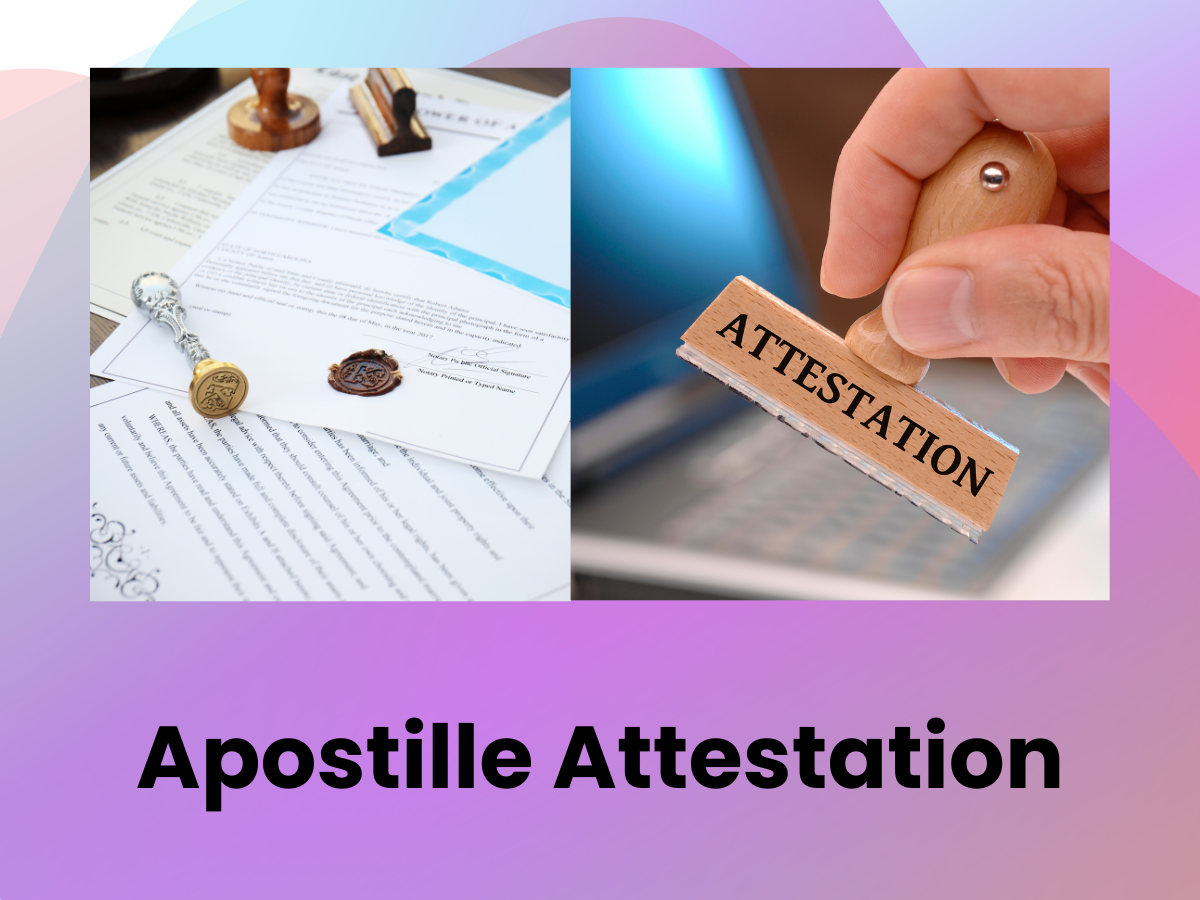Guide to Apostille Attestation: Everything You Need to Know

In our increasingly globalized world, the need for document authentication and verification has become paramount. Whether you're planning to study abroad, work in a foreign country, or engage in international business, you'll likely encounter the term "apostille attestation." In this comprehensive guide, we will delve into the intricacies of apostille attestation, covering everything from its definition to the step-by-step process, its importance, and some key considerations.
Understanding Apostille Attestation: What Is It?
Apostille attestation is a simplified and standardized method of authenticating documents for international use. This process ensures that your documents, such as birth certificates, diplomas, marriage certificates, and legal papers, are legally recognized in foreign countries. It involves verifying the authenticity of your documents and attaching an apostille certificate to confirm their validity. The apostille is recognized under the Hague Convention, which simplifies the process of document authentication across member countries.
Why Is Apostille Attestation Important?
Apostille attestation serves several critical purposes:
1. Ensures Legal Recognition:
Foreign authorities may not recognize your documents unless they are properly authenticated. Apostille attestation guarantees the legal validity of your documents in member countries of the Hague Convention.
2. Facilitates International Transactions:
For international business dealings, apostille attestation is essential. It allows you to submit legally recognized documents, such as contracts or patents, when conducting business abroad.
3. Simplifies Administrative Processes:
Studying or working abroad often involves dealing with government agencies and institutions. Apostille attestation streamlines these processes by confirming the authenticity of your documents.
The Apostille Attestation Process
Now that we understand the importance of apostille attestation let's explore the step-by-step process involved:
1. Document Preparation:
Begin by ensuring your document is complete and accurate. Any discrepancies or errors can lead to delays in the attestation process.
2. Local Attestation:
Before apostille attestation, your document may require attestation from local authorities. This involves getting the document notarized or authenticated by relevant government departments.
3. Contacting the Secretary of State:
In the United States, each state has a Secretary of State responsible for apostille attestation. Contact the Secretary of State's office in your state to inquire about their specific requirements and fees.
4. Submission of Documents:
Submit your documents, along with any required fees and application forms, to the designated authority. Ensure that you provide all necessary information, such as the country of destination and the purpose of attestation.
5. Verification:
The designated authority will verify the authenticity of your documents and, if everything is in order, attach an apostille certificate. This certificate will be affixed to the document, confirming its legitimacy.
6. Return of Attested Documents:
Once the apostille attestation is complete, your documents will be returned to you. They are now ready for use in foreign countries that are parties to the Hague Convention.
Key Considerations for Apostille Attestation
To navigate the apostille attestation process smoothly, keep the following considerations in mind:
1. Document Types:
Apostille attestation is applicable to various document types, including educational, personal, and legal documents. Ensure you understand which documents require attestation for your specific purpose.
2. Timelines:
The attestation process can take time, so plan well in advance. Delays in authentication can disrupt your plans for studying, working, or conducting business abroad.
3. Destination Country:
Check whether the country you intend to visit or do business in is a member of the Hague Convention. If not, you may need additional authentication or legalization processes.
4. Seek Professional Assistance:
For complex cases or unfamiliar processes, consider seeking assistance from a professional attestation service. They can guide you through the intricacies of document authentication.
Conclusion
Apostille attestation is an essential step when dealing with international matters that require document verification. Understanding the process, its importance, and the key considerations can make your journey smoother and more efficient. By following the steps outlined in this guide and staying informed, you can ensure that your documents are internationally recognized and ready for use in a globalized world.
- Industry
- Art
- Causes
- Crafts
- Dance
- Drinks
- Film
- Fitness
- Food
- الألعاب
- Gardening
- Health
- الرئيسية
- Literature
- Music
- Networking
- أخرى
- Party
- Religion
- Shopping
- Sports
- Theater
- Wellness
- News


